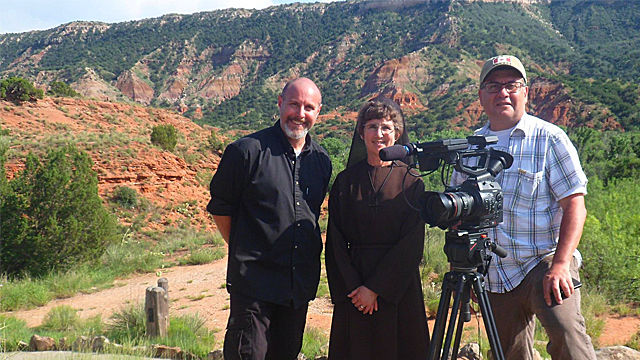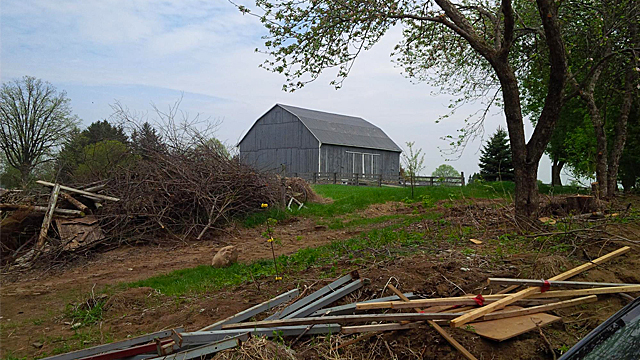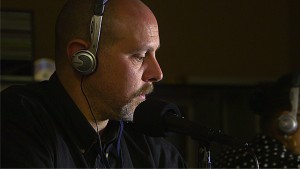

Deacon-structing Creation: Part 2
Deacon Pedro
Sunday, December 6, 2015

Last week, I explained how asking a simple question like how we should care for the environment led us to ask many more other questions, from looking through the creation narrative in the Book of Genesis, to discovering that our desire to learn about created things begins with a sense of wonder.
Sr. Damien Marie Savino, FSE of the University of St. Thomas in Houston (LINK) and I worked very hard at trying to be honest with our questions and answers. Doing so led us from the sense of wonder, to the importance of trying to find a balance between the enjoyment and abuse of nature. Doing so led us to other issues.
At the time, our Pope was Benedict XVI. He is the pope that has been most outspoken about the ecology, so much so that he is often referred to as the “Green Pope”. Both he and St. John Paul II (and now Pope Francis with Laudato Si’) have said that the ecological crisis is a moral crisis. Why is it a moral crisis? Why is caring for creation a moral issue. One more thing to keep in mind for our series.
There is also the question of how we deal with technology and science. Most of the people we interviewed in episode one are scientists. The Church is not against science. We learned in episode one that in Catholic teaching there is no conflict between the Theory of Evolution and our beliefs about creation. We also learned that the person who came up with the Big Bang Theory was a Catholic Priest, Fr. Georges Lemaitre. Science is what helps us know things. But we have to be careful not to make science our god and develop a materialistic view of creation.
We also need to move away from consumeristic, selfish lifestyles, what Pope Francis now calls the “throwaway” mentality, into a more sober lifestyle, a more contemplative lifestyle. More questions to include in our series.

Perhaps the most important question we had to ask while exploring the question of our sense of wonder is the place of human beings in all this equation. The fact that humans have a unique capacity for wonder and reflection and art, says something very critical about who we are as humans.
Sr. Savino says:
“We are the only species that ecologically has been able to touch every facet of this earth. It also means that we have that unique sort of inner capacity to realize the inner purpose of creation and to bring it back to the father in some way. In Romans 8, we read that all creation is groaning, waiting to be made known. And that has always been a particular calling in my own life; that we are humans that bring that creation back to the father.”
And that’s really where we felt we had to end, “bringing creation back to the Creator” but we still did not have the term that Pope Francis introduced for it: “integral ecology.”
From the Book of Genesis to the writings of our Church Fathers, to the teachings of St. Francis and St. Bonaventure and the writings of our popes, particularly in the last 100 years, the Church has always had a clear message about caring for creation.
Perhaps Sr. Savino says it best:
“We know that we are to care for creation, if we believe that there is an in-built order in this created world and there is a design there, then that means that there is a purpose to this created world. And as Christians, we believe that this created world was created by God, the creator, and so God instilled a purpose in this creation. And we have a special place, as human beings in this creation, and part of it is to help the creative world realize its purpose. First we have to understand the purpose, and we do that through our science, and then, through our stewardship, we help the created world to realize its purpose.”
The call to care for the environment comes first from our innate ability to wonder at things and to be in awe of beauty. That question will lead us to explore the unique place that humans have in God’s creation. When we understand that humans are the only species that have the ability to care for creation, we have to ask how we are to do that. How are we to respect creation? And perhaps a good place to begin is by looking at what happens when we don’t respect creation. The next step has to be to find the tools that we need in order to steward creation and to bring it to its fullest fertility. This is what we term “intergral ecology” and this is where our series ends.
We hope that you are enjoying Creation. If you missed any of the episodes, you can watch all of them online at www.saltandlighttv.org/creation and you will be able to purchase the DVD of the whole series in the next couple of weeks. It is not just an entertaining, interesting and educational series, but one that would be a great tool for classroom or parish study.
Laudato si’ mio Signore!

Every week, Deacon Pedro takes a particular topic apart, not so much to explore or explain the subject to its fullness, but rather to provide insights that will deepen our understanding of the subject. And don’t worry, at the end of the day he always puts the pieces back together. There are no limits to deaconstructing: Write to him and ask any questions about the faith or Church teaching:pedro@saltandlighttv.org
Related Articles:
>>
SUPPORT LABEL
$50
$100
$150
$250
OTHER AMOUNT
DONATE
Receive our newsletters
Stay Connected
Receive our newsletters

Stay Connected









